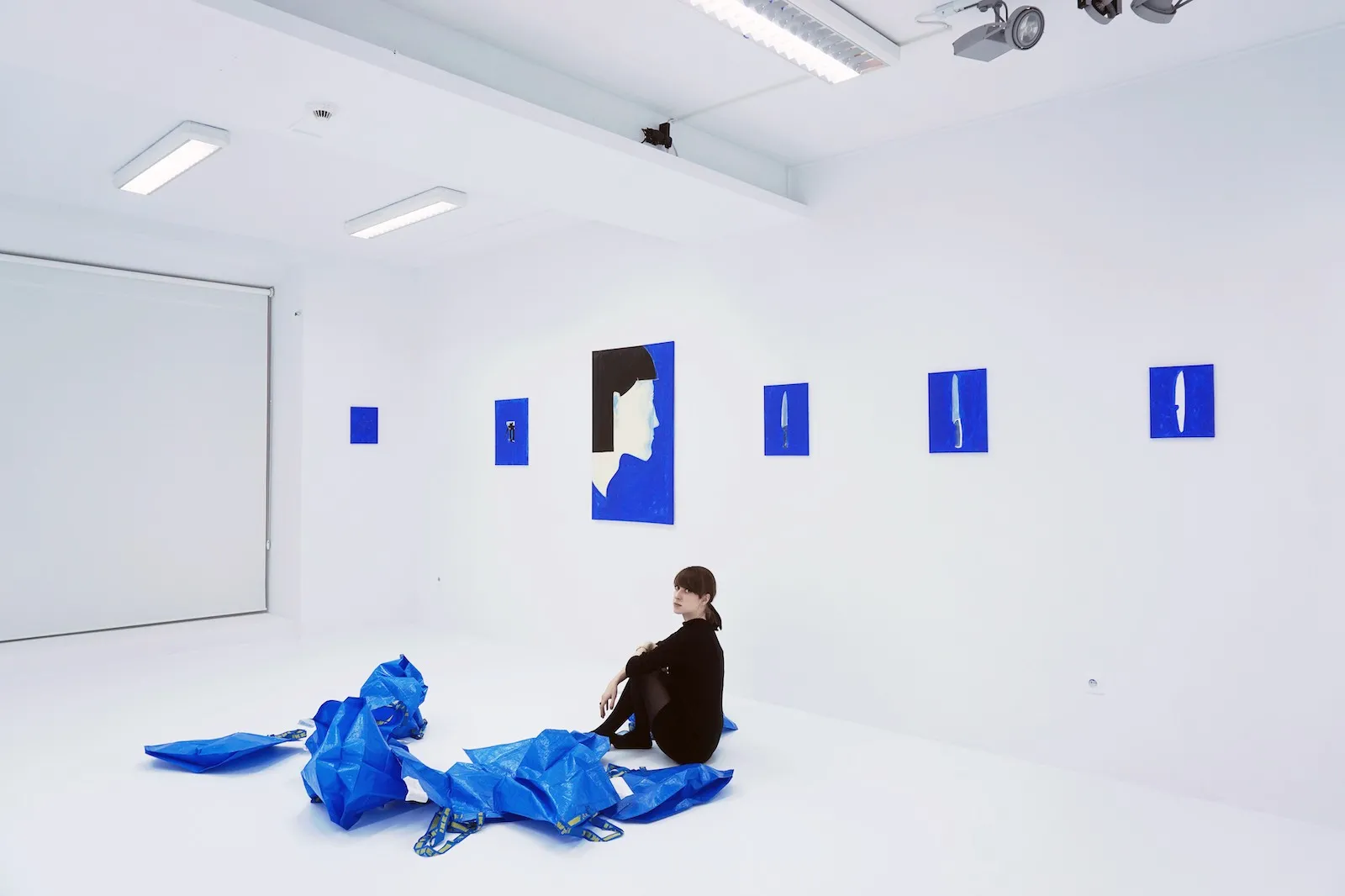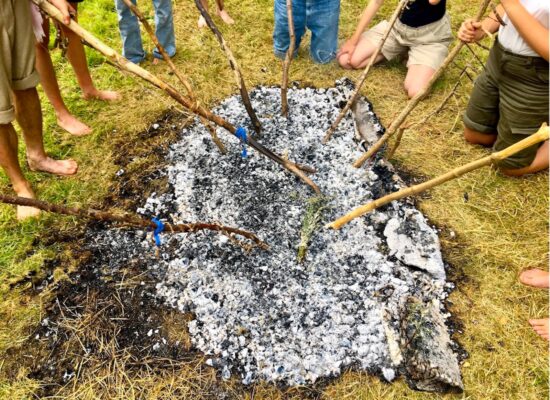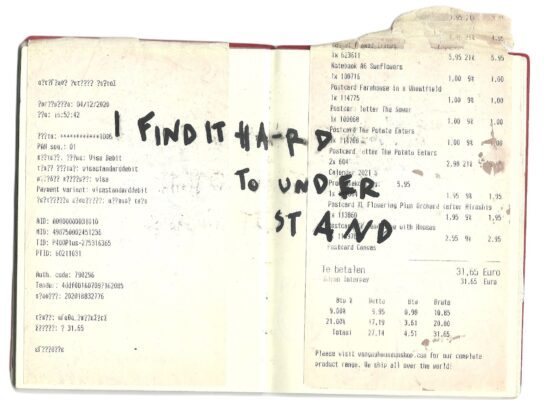Based in Warsaw, Poland
Website https://joannaambroz.pl
Research project Come, I will show you my knives. – The method of making a Reflective Book, allowing personal experiences to be worked through
Location The Academy of Fine Arts and Design in Katowice, Poland
Can you describe your research project?
The method I developed in my doctoral work is called the Reflective Book Making Method. It is based on combining intuitive creative actions, which are later sorted through conscious design decisions. I divide the process into two stages: the first, experimental stage, involves creating images and notes that express pain. This stage, rooted in intuition, refers to Jung’s concept of Active Imagination, which emphasizes creative exploration without imposing a specific form or structure. It allows for the discovery of new meanings, finding personal symbols, and freely connecting experiences with their visual representation.
The second part of the method is the conscious organization of the material collected during the intuitive phase. This involves selecting and arranging both texts and images to create a logical, systematic, and clear form of publication. In this stage, I use design techniques that help provide structure and clarity to the book, making the content easier to understand for both the reader and the creator. This process also includes the graphic design of the material and bookbinding, which is a crucial element in the finalization of the work. In this way, the combination of intuitive actions with rational design becomes a means of transforming personal experiences into the artistic form of a Reflective Book.
The result of this research work is the reflective book Come, I will show you my knifes (Chodź, pokażę ci moje noże), a series of 14 paintings on canvas, and a description of the method used in the book creation process.
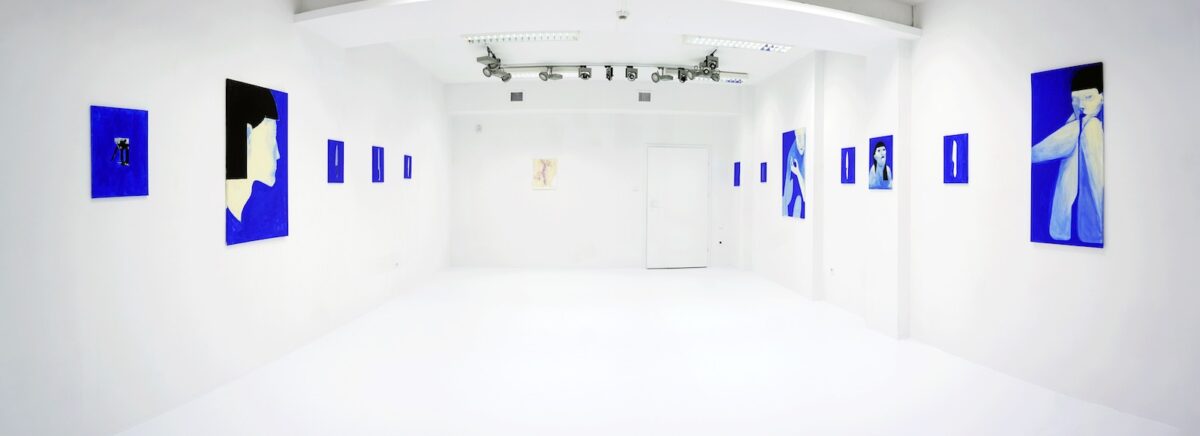
Why have you chosen this topic?
I chose this topic because I wanted to explore how the process of organizing free artistic actions through design could help in processing difficult emotions and personal experiences, particularly those related to loss and grief. In the face of illness and the death of a loved one, this research became not only a way to express these experiences but also a form of self-help. I was interested in understanding how artistic actions can transform personal traumas into something universal, which could resonate with others going through similar challenges.

What research methods do you use?
The basis of the thesis was an artistic experiment. During the creation of the dissertation, I did not focus on obtaining a specific result, but rather observed and recorded the research process.
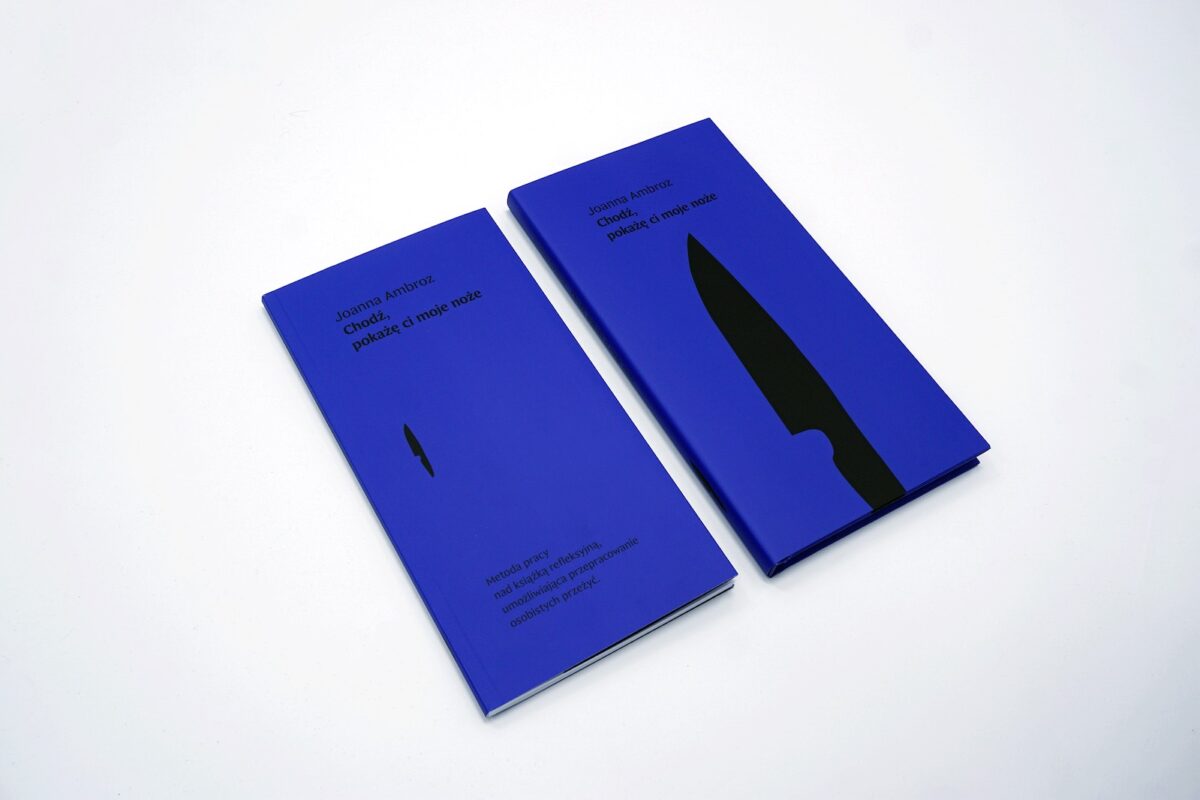
In what way did your research affect your artistic practice?
The project was a culmination and recognition of the potential of an interdisciplinary approach in art and design. In my practice, I often used books as a medium to express difficult topics: my bachelor’s thesis Cut – the hair of the Polish folks (Cięcie – włosy ludu polskiego) analyzed rituals and cultural aspects of hair in Polish tradition, while my master’s thesis Shame (Wstyd) focused on emotions related to self-awareness. My doctoral work allowed me to understand and articulate my creative process in a way that others could apply. While writing, I questioned the purpose and meaning of my work, but the project ultimately became a testament to transformation and the search for a new place. Throughout the project, I solidified my creative consciousness, based on a deeper understanding of my own processes. Initial uncertainty gave way to reflection on the role of art in processing experiences.

What are you hoping your research will result in, both personally and publicly?
I would like the Reflective Book Making Method to become a tool that helps others process difficult moments in life. I believe this method can lead to a better understanding of topics related to trauma and grief, both in personal and public spaces, encouraging individuals to document and accept their own past.

